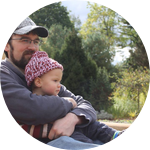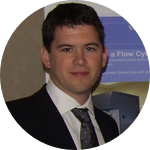About This Project
Zika virus is a rapidly emerging virus that is spreading throughout the Western Hemisphere. It is predicted to spread throughout the Americas by the end of 2016. Previously thought to be a mild disease, Zika virus is now associated with a significant increase in microcephaly. In order to learn about how Zika virus interacts with cells in the brain, we will infect progenitor and mature neural cells with Zika virus and determine if the virus can replicate and impact survival and proliferation.
Ask the Scientists
Join The DiscussionWhat is the context of this research?
Zika virus was first discovered in Uganda in 1947. It is a mosquito-borne virus that has slowly spread around the globe. Recently, Zika virus has emerged in the Western hemisphere and is rapidly spreading throughout South and Latin America. Zika virus typically causes a mild disease, although it has been associated with a significant increase in the number of cases of microcephaly - small brains in newborn children.
What is the significance of this project?
The current Zika virus outbreak is associated with a significant increase in microcephaly. Unfortunately, there is no published data that details the impact of Zika virus on fetal neurons. Time is of the essence to determine how Zika virus alters fetal neurons so that interventions can be developed.
What are the goals of the project?
The goals of the project are simple.
1) Develop a model of Zika virus infection in fetal neural cells.
2) Assess how Zika virus alters survival and proliferation.
3) Target conserved epitopes with antibodies to protect neural cells from infection.
Budget
We need enough funds to pay for cell culture and infectivity assay reagents. Additionally, we will produce antibodies that target Zika virus and determine if they can protect neural cells from infection.
Endorsed by
Meet the Team
Affiliates
Michael James Conway
Raised in Grand Rapids, MI, I was destined to brew beer for a living. I was an avid all-grain brewer and pursued an undergraduate degree in microbiology and chemistry with the intent to obtain a Masters in Brewing. However, I quickly became enamored with evolution and whether or not viruses were living entities. Richard Dawkin's Selfish Gene was a huge inspiration.
I decided to intern in a molecular virology laboratory. This decision changed my life. I have since been a very undisciplined virologist, jumping from one virus to another. I have performed bench research on herpesviruses, adeno-associated viruses, papillomaviruses and flaviviruses. After years of tackling very esoteric projects that had little practical application, I decided to focus on some of the major questions in virology:
(1) How do viral pathogens emerge?
(2) How do viruses contribute to evolution?
(3) How do you develop an effective antiviral?
Due to my postdoctoral experience at Yale University, our current model system focuses on dengue virus, a mosquito-borne pathogen that causes disease in hundreds of millions per year and kills thousands of children. Zika virus is a close relative the dengue virus. We will now use our skillset to understand how Zika virus replicates and causes disease.
Julien Rossignol
When I started to work on stem cells, the possibilities to me were infinite; if science could understand the mode of action, many new therapeutic options would be the result. My research focus has been on the use of stem cells, derived from adult tissues, as treatment for behavioral deficits in rodent models of Huntington’s disease (HD) and neurodegenerative diseases in general.
Neuroscience is an ideal field to test out the efficacy of stem cell medicine and open a large field of investigations. With the new discoveries related to the potential link between viral infection and neurodegenerative diseases (such as Alzheimer's disease or Parkinson's disease). understanding the mechanisms of infection from virus is becoming very important. Definitively understanding better the effect of Zika virus on brain cells is needed to help fighting the infection.
I received bachelor of science degrees in cellular biology and biochemistry from the University of Nantes, France. I received a master's degree in molecular biology and biophysics from the University of Orleans, France and a Ph. D. in neuroscience from the University of Nantes, France. My graduate work involved studies on the therapeutic effect of adult stem cell transplantations in Huntington's disease rat model. Following post-doctoral fellowships at INSERM U643 in Nantes, France and in the Neuroscience Program and the Department of Psychology at Central Michigan University where I continued my work with stem cells as a potential cure for neurodegenerative diseases. As a faculty member in the College of Medicine I am conducting my research in the Field Neurosciences Institute Laboratory for Restorative Neurology.
Additional Information
This project is a collaboration between two laboratories at the Central Michigan University College of Medicine. Dr. Conway is a vector-borne disease researcher. Dr. Rossignol is a neuroscientist. We have developed a plan to assess how Zika virus impacts neural cells. Time is of the essence to understand how this virus causes microcephaly.
Project Backers
- 53Backers
- 108%Funded
- $2,162Total Donations
- $40.79Average Donation





